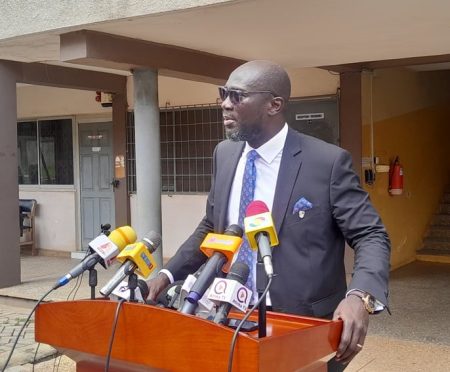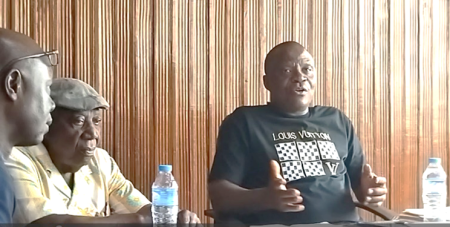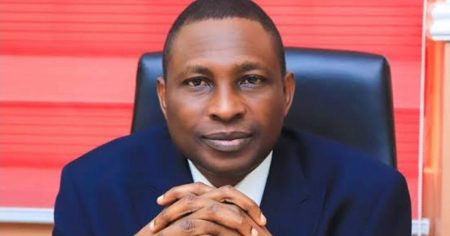Addressing the Persistent Flooding Challenges in Yusufari, Yobe State: A Proactive Legislative Intervention
The Yobe State House of Assembly, cognizant of the recurring devastation caused by floods in Yusufari town, the headquarters of Yusufari Local Government Area, has initiated a legislative process to tackle the persistent flooding challenges and safeguard the lives and properties of its residents. During a plenary session presided over by Speaker Rt. Hon. Chiroma Buba Mashio, the Assembly deliberated on a motion presented by Hon. Alhaji Hassan Mohamed, representing the Yusufari Constituency, urging immediate action to address the pressing issue.
Hon. Hassan’s motion underscored the urgency of the situation, highlighting the recurring nature of floods in Yusufari and their devastating impact on the community. He appealed to the House to direct its Committees on Environment and Disaster Management to conduct a comprehensive on-the-spot assessment of the flood-affected areas in Yusufari. This assessment, he suggested, should involve collaboration with international partners to leverage their expertise and resources in formulating effective flood mitigation strategies. He emphasized the need for a proactive approach, urging the state executive to direct the Yobe Agro-Climatic Resilience in Semi-Arid Landscape (YACRISAL) project to deploy experts to implement preventive measures ahead of the impending rainy season. Recognizing the importance of external support, he further appealed to international development partners and NGOs specializing in disaster risk management to provide technical assistance, capacity building initiatives, and funding to enhance the town’s resilience against floods.
The motion resonated deeply with the members of the House, who unanimously expressed their support and emphasized the importance of swift and decisive action to address the flooding crisis. Speaker Chiroma Buba Mashio commended Hon. Hassan for bringing the critical issue to the forefront and stressed the significance of forwarding the motion to the Presidential Committee on Environment. This, he explained, would ensure that Yobe State receives its due share of national environmental interventions and resources allocated for flood mitigation efforts.
The Speaker further emphasized the need for proactive follow-up by the House members, urging them to engage with relevant stakeholders, including government agencies, international organizations, and community representatives, to ensure the motion translates into tangible action. He stressed that the efforts should not be limited to Yusufari but extended to other flood-prone areas across Yobe State, demonstrating the Assembly’s commitment to comprehensive flood management across the state.
A Call for Collaborative Action: Engaging Stakeholders and Implementing Sustainable Solutions
The proactive engagement of the Yobe State House of Assembly signifies a crucial step towards addressing the long-standing flooding problem in Yusufari. By directing its relevant committees to conduct on-the-spot assessments and involving international partners, the Assembly aims to develop a comprehensive understanding of the underlying causes of flooding and formulate targeted interventions. Collaborating with YACRISAL and other relevant agencies will ensure that preventative measures are implemented ahead of the rainy season, minimizing the potential impact of future floods.
The call for support from international development partners and NGOs underscores the recognition that tackling complex challenges like flooding requires a collaborative and multi-faceted approach. By leveraging their expertise, resources, and technical assistance, the state aims to enhance its capacity for flood risk management and build a more resilient community. The Assembly’s emphasis on follow-up with stakeholders reflects a commitment to ensuring that the motion translates into concrete actions, not just in Yusufari but across all flood-prone areas in Yobe State.
Beyond Immediate Relief: Building Long-Term Resilience through Sustainable Flood Management Practices
The Yobe State House of Assembly’s initiative transcends mere reactive measures, demonstrating a commitment to building long-term resilience through sustainable flood management practices. By involving international partners and seeking technical and financial support, the State aims to develop comprehensive flood mitigation strategies that address the root causes of the problem. This forward-looking approach recognizes that sustainable solutions require ongoing investment in infrastructure, capacity building, and community engagement.
The proactive involvement of the House of Assembly sets a positive precedent for tackling environmental challenges through collaborative governance. By engaging with diverse stakeholders, including local communities, government agencies, and international organizations, the state aims to foster a collective responsibility for flood management. This approach underscores the importance of community participation and local ownership in developing and implementing sustainable solutions that protect lives, livelihoods, and the environment.
From Assessment to Action: Implementing Comprehensive Flood Mitigation Strategies in Yobe State
The House of Assembly’s directive for an on-the-spot assessment lays the groundwork for developing evidence-based interventions tailored to the specific challenges in Yusufari and other flood-prone areas. By engaging experts from YACRISAL and leveraging the expertise of international partners, the assessment will gather crucial data on flood patterns, vulnerabilities, and existing infrastructure. This information will inform the development of comprehensive flood mitigation strategies, which may include structural measures such as the construction of dams, embankments, and drainage systems, as well as non-structural measures such as early warning systems, land-use planning, and community education campaigns.
The Assembly’s call for international support reflects a proactive approach to securing the necessary funding and technical expertise for implementing these comprehensive strategies. By collaborating with development partners and NGOs, the state aims to leverage their resources and knowledge to build a more resilient future for flood-prone communities. The emphasis on capacity building recognizes that long-term flood management requires investing in local expertise and empowering communities to actively participate in risk reduction efforts.
Ensuring Accountability and Transparency: Monitoring Progress and Measuring Impact
The Speaker’s call for follow-up from House members underscores the importance of accountability and transparency in implementing the proposed flood mitigation measures. By actively engaging with stakeholders and monitoring progress, the Assembly can ensure that allocated resources are utilized effectively and that the intended outcomes are achieved. Regular updates and public consultations will promote transparency and ensure that community members are actively involved in the decision-making process.
The focus on extending flood mitigation efforts to other vulnerable areas across Yobe State reflects a broader vision of comprehensive disaster risk reduction. By adopting a proactive and integrated approach, the state aims to strengthen its resilience to climate change impacts and protect communities from future flood risks. The emphasis on monitoring and evaluation recognizes the importance of measuring the impact of interventions and adapting strategies based on evidence and lessons learned.
A Holistic Approach to Flood Management: Integrating Disaster Risk Reduction into Development Planning
The Yobe State House of Assembly’s initiative signifies a shift towards a more holistic approach to flood management, integrating disaster risk reduction into development planning. By addressing the root causes of flooding and investing in long-term resilience, the state aims to create a safer and more sustainable future for its communities. This integrated approach recognizes the interconnectedness of environmental, social, and economic factors and necessitates collaboration across various sectors to achieve comprehensive flood management.
The focus on capacity building and community engagement reinforces the principle that sustainable solutions require local ownership and active participation. By empowering communities to take an active role in risk reduction, the state promotes a culture of preparedness and strengthens its collective resilience to future flood events. The Assembly’s proactive engagement and emphasis on transparency set a positive example for collaborative governance and demonstrate a commitment to addressing the challenges of climate change and building a more resilient future for Yobe State.



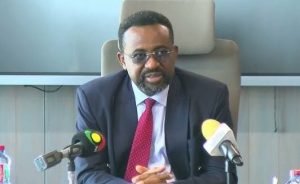

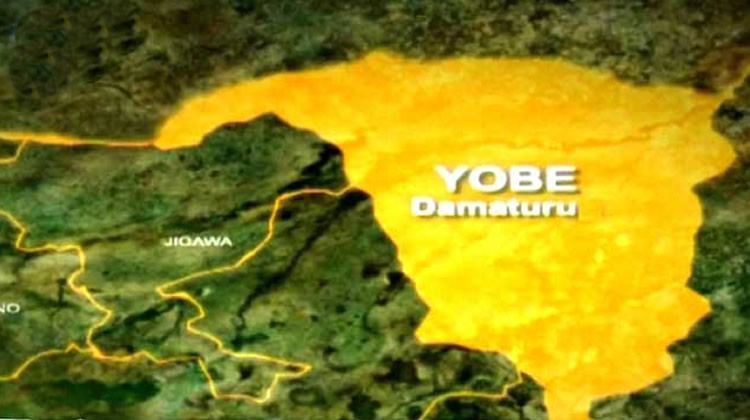

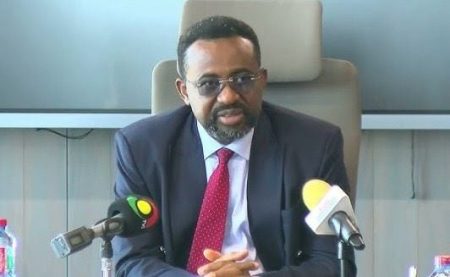
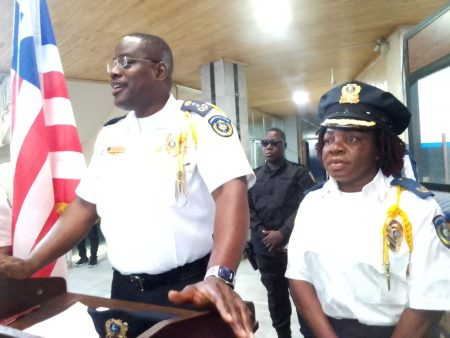
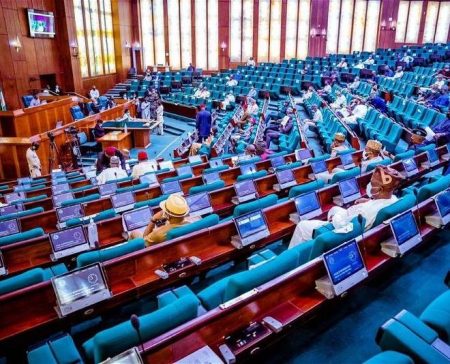
![Oyo State Claims Victory in Hockey and Abula at [Competition Name]](https://westafrican.news/wp-content/uploads/2025/05/Oyo-450x257.jpg)

